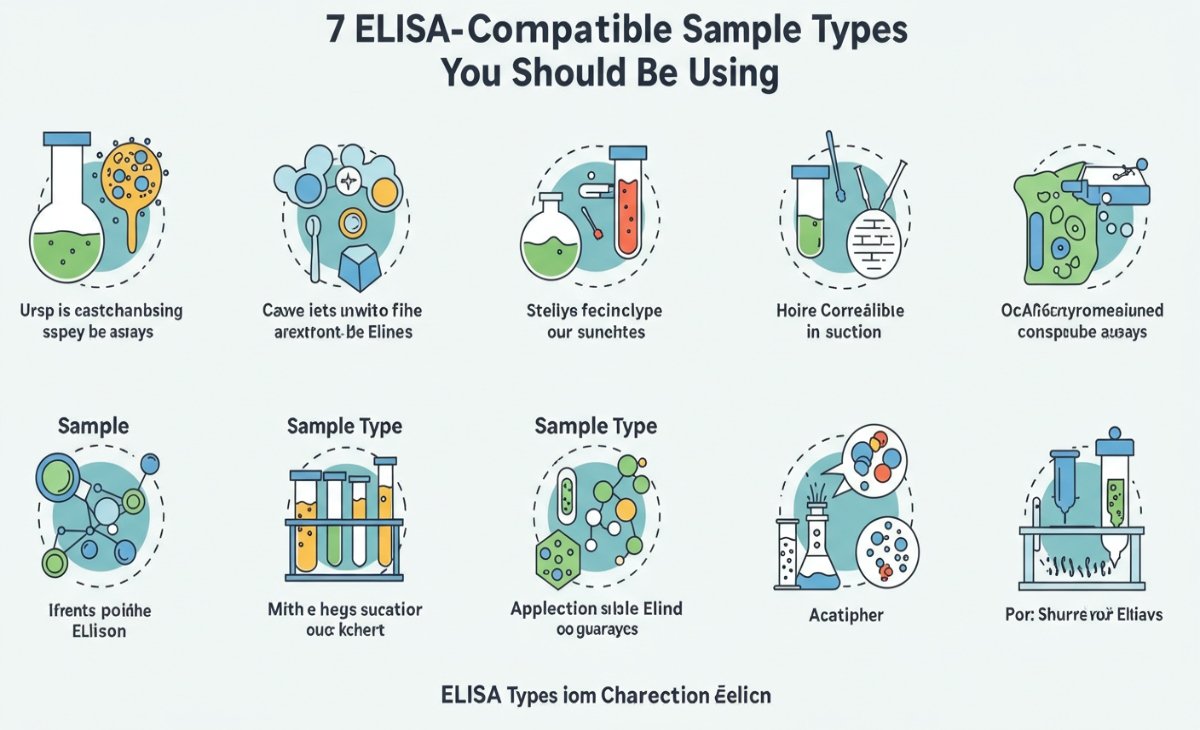Think an ELISA can only work with blood? A quick reality check: while plasma and serum are the usual suspects, the enzyme-linked immunosorbent assay can gladly accept a whole range of sample types. Read on to discover seven sample types that could freshen your workflow and spark breakthroughs you didn’t see coming.
1. Saliva: The Non-Invasive Game Changer
Say goodbye to needles and hello to a spit tube. Saliva is the non-invasive hero for monitoring stress hormones, drugs, and germs alike. Cortisol in saliva matches blood levels almost perfectly, making it ideal for longitudinal studies where patient comfort matters. Grab a sample on a park bench, in the lab, or even at the airport – no special kit needed.
2. Urine: Your Window into Metabolic Health
Urine has long been the behind-the-scenes star of health testing, but its value in ELISA runs much deeper. The fluid provides plenty of signals when tracking kidney function, metabolites, or hormone swings because many compounds are packed into every drop. Pregnancy strips showed you its power; now imagine that force in a full benchtop plate. With urine, one small specimen can open a big window on metabolic health.
3. Cerebrospinal Fluid: Unlocking Neurological Mysteries
Whenever scientists test the brain, they often ask for a sample of cerebrospinal fluid, or CSF. This clear liquid, collected with care, gives a front-row look at what is happening inside the central nervous system. Whether they are hunting for Alzheimer warning signs or checking for multiple sclerosis flags, CSF-centered ELISA tests keep moving neurological diagnostics and discoveries forward.
4. Cell Culture Supernatants: Laboratory Gold
Your cell cultures are producing more than just cells – they are creating a rich soup of secreted proteins, cytokines, and growth factors. These supernatants are perfect for studying cellular communication, drug effects, and protein production. The controlled environment means consistent, reproducible results that reviewers love.
5. Tissue Homogenates: Direct from the Source
Sometimes you need to go straight to where the action happens. Tissue homogenates provide concentrated analyte levels and spatial specificity that other sample types simply can’t match. Whether you are studying tumor markers or tissue-specific proteins, homogenates deliver the goods with impressive sensitivity.
6. Synovial Fluid: Joint Health Insights
Rheumatology researchers, this one’s for you. Synovial fluid ELISA assays are invaluable for studying arthritis, joint inflammation, and cartilage degradation markers. The unique composition of this fluid provides insights that serum samples might miss entirely.
7. Fecal Extracts: The Gut Connection
Don’t wrinkle your nose – fecal samples are research gold for gut health studies. From inflammatory bowel disease markers to microbiome-related proteins, fecal ELISA assays are revealing the crucial connections between gut health and overall wellness. The sample stability and rich analyte content make this an increasingly popular choice.
Expand Your Research Horizons Today
The beauty of ELISA’s versatility lies in its adaptability to diverse biological matrices. Each sample type offers unique advantages and opens specific research avenues that could transform your projects. By embracing these seven sample types, you are not just expanding your toolkit – you are positioning yourself at the forefront of innovative research methodologies.
Take the next step in your research journey. Explore MyBioSource’s comprehensive ELISA kit collection to find which sample types could elevate your next breakthrough study.

